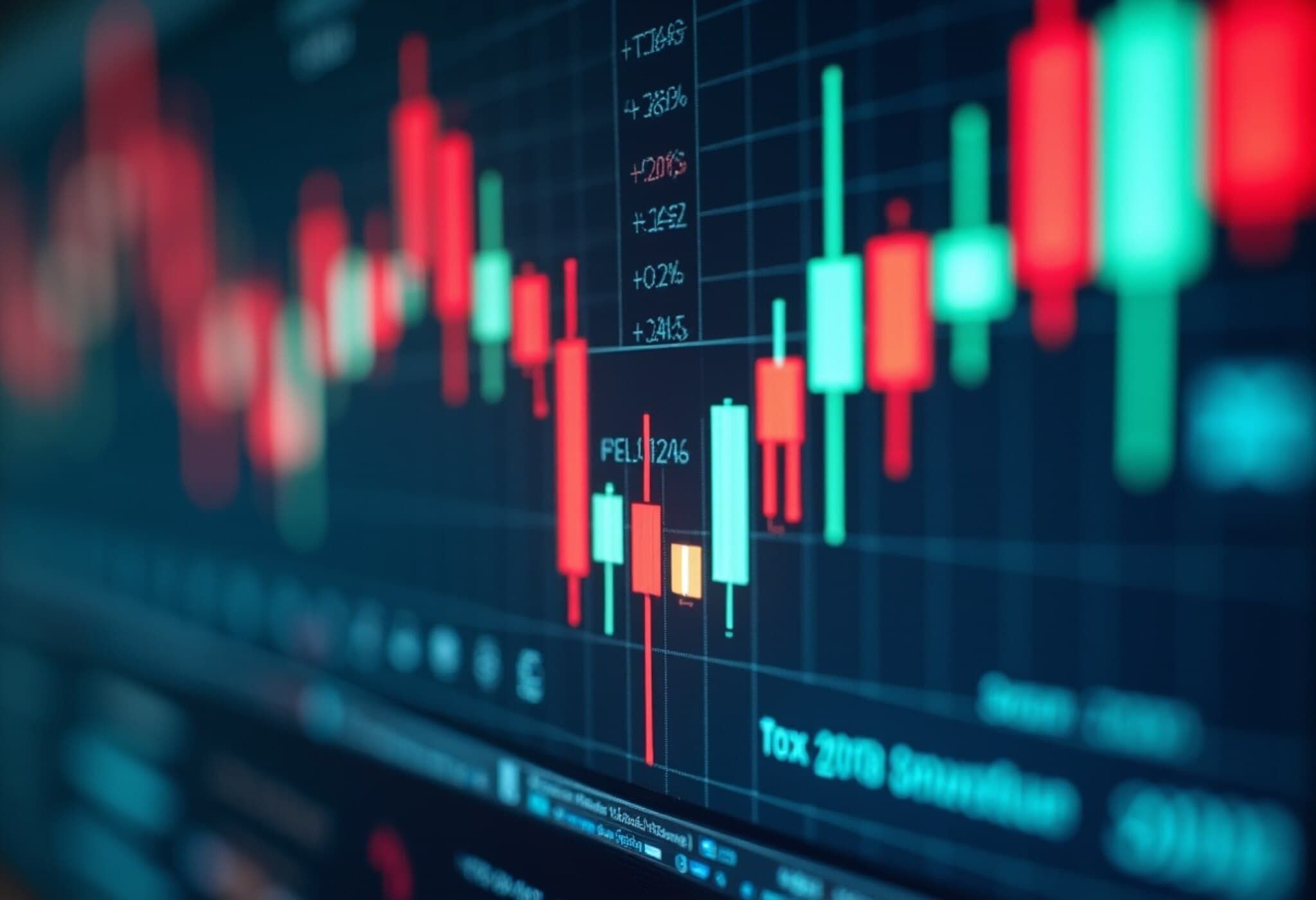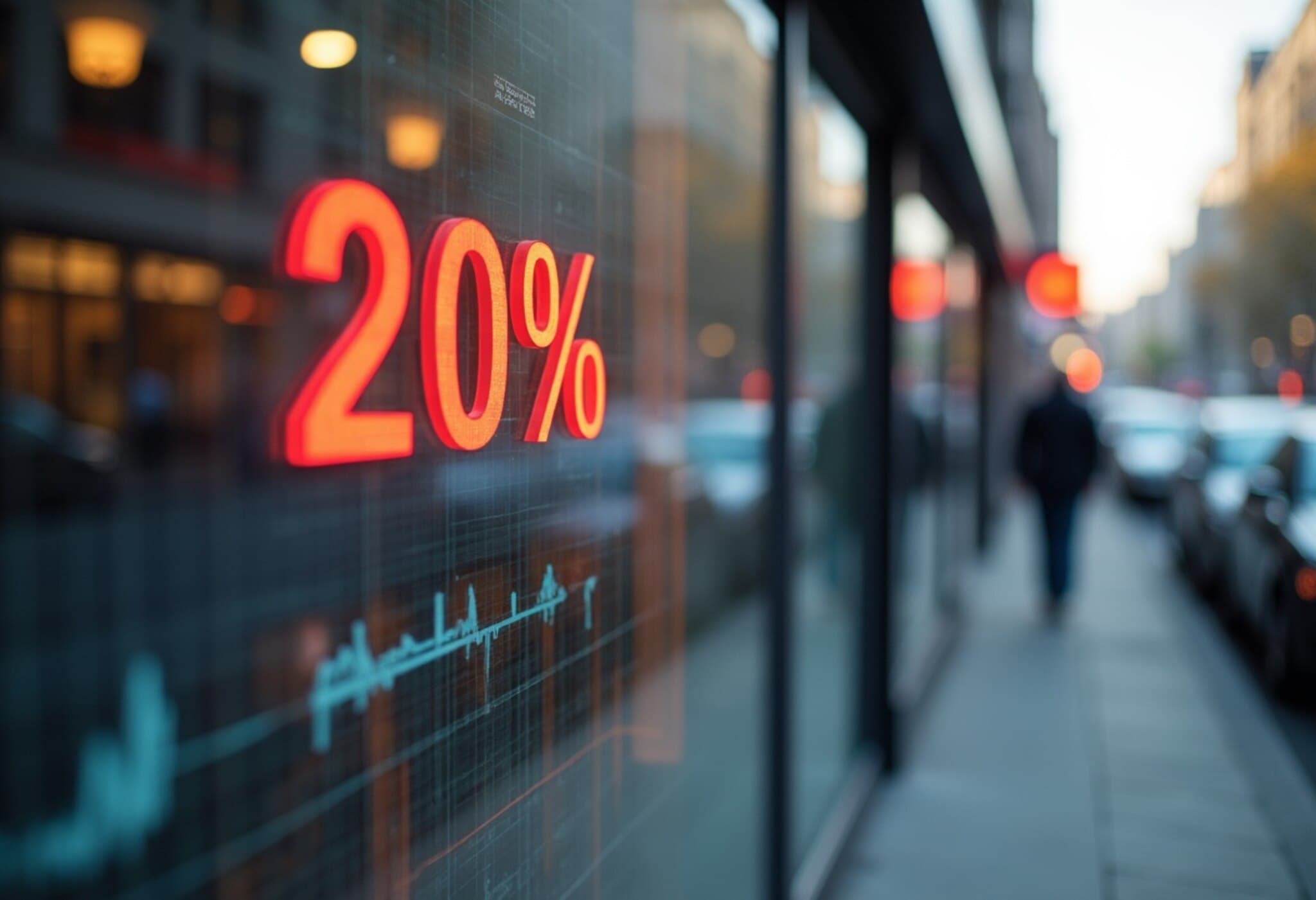Banking Sector Earnings and ECB Decisions: What Investors Should Watch This Week
As global markets gear up for a pivotal week, financial institutions across Europe will take center stage, with their quarterly earnings reports likely to influence investor sentiment substantially. Meanwhile, the European Central Bank (ECB) prepares for a decision that could reverberate through European economies and beyond, amid geopolitical tensions on trade tariffs.
Major European Banks Reporting Earnings
The spotlight is on Europe’s banking giants, including UniCredit, Deutsche Bank, BNP Paribas, Lloyds Banking Group, and NatWest, who are set to reveal their latest financial results.
After a resilient first quarter, where earnings per share (EPS) growth surprised positively, analysts anticipate that the financial sector will maintain its momentum, bucking the trend seen in sectors like luxury goods, automotive, and energy, which have suffered earnings downgrades.
UniCredit kicks off earnings season on Wednesday, facing pressure to keep the narrative focused on solid financial performance amidst ongoing merger and acquisition (M&A) ambitions. Notably, its efforts to increase equity stakes and expand through potential takeovers have been complicated by legal hurdles, such as an Italian court pausing takeover bids and setting further conditions. Despite these challenges, the bank's stock has soared over 50% this year, offering CEO Andrea Orcel a platform of optimism against a backdrop of industry consolidation.
Watch: UniCredit CEO Andrea Orcel discusses bank’s strategic vision
The same day, investors will turn their attention to BNP Paribas, the eurozone’s largest bank by assets. Last quarter’s performance was buoyed by a strong investment banking segment, though management has lowered profit margin targets slightly, signaling cautious optimism in an uncertain economic climate.
Thursday brings focus to Frankfurt with Deutsche Bank unveiling its results after reporting its highest profit in fourteen years last quarter. The bank’s CEO, Christian Sewing, recently suggested that Europe could capitalize on increased defense spending to spur growth, reflecting broader themes of strategic investment and geopolitical shifts.
Watch: Deutsche Bank CEO Christian Sewing on Europe’s defense investment gap
The ECB’s Strategic Pause Amid Trade Uncertainties
The week will culminate with a highly anticipated ECB policy meeting, where President Christine Lagarde and her council are expected to keep interest rates steady at 2%. The decision reflects an environment where policymakers prefer a cautious ‘wait-and-see’ approach, balancing inflation concerns with the risks posed by global trade tensions.
Despite ongoing threats from the U.S. administration to impose tariffs as high as 30% on EU imports, ECB insiders suggest that such challenges will not immediately sway this week’s rate decision. However, should these tariffs materialize, there is a broad expectation that the ECB may have to pivot to rate cuts to cushion potential economic fallout.
Investors and policymakers alike will have until September 11—a key date following the ECB summer recess—to fully gauge how tariffs and trade negotiations might reshape Europe's economic landscape.
Inflation Risks and Market Sentiment
Experts from Deutsche Bank warn that inflationary pressures in Europe remain underestimated amid market complacency. The shockwaves from tariff impositions have yet to fully ripple through prices and asset valuations, potentially setting the stage for abrupt market reactions.
With the U.S.-EU tariff negotiation deadline looming on August 1, financial markets are bracing for volatility, as delayed outcomes from these talks could provoke sharp adjustments in investor behavior.
Key Takeaways for Investors
- Bank earnings: Watch how earnings from leading banks reflect resilience and strategic maneuvering in a complex regulatory and geopolitical environment.
- ECB policy: Expect a steady hand this week, with policy flexibility hinging on trade tensions and inflation data in coming months.
- Tariffs and trade negotiations: The uncertain path of U.S.-EU trade relations remains a wild card influencing market dynamics beyond traditional economic indicators.
Editor’s Note
This week’s convergence of banking earnings and ECB monetary policy offers a nuanced snapshot of Europe’s economic pulse amid global uncertainties. While financial giants show encouraging resilience, the shadow of trade tariffs casts a cautionary tone over the outlook.
For readers and investors, the key lies in monitoring not just headline figures but also the underlying narratives—how legal battles over bank mergers, defense sector investments, and geopolitical negotiations interweave to shape Europe’s financial future. As the ECB opts for a strategic pause, the real test will be how these layered risks unfold after the summer break, reminding us that in today’s interconnected world, economic decisions echo far beyond balance sheets.














